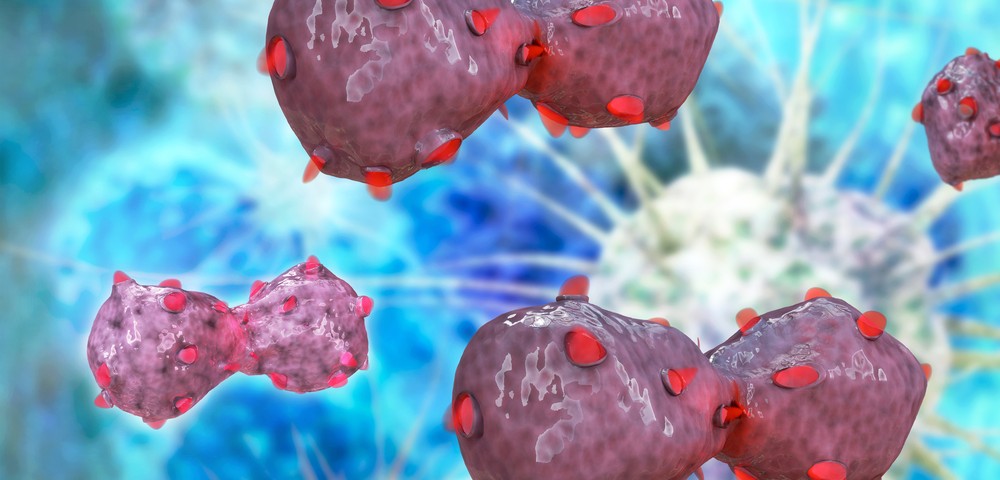Inhibiting a cell surface molecule involved in cell adhesion makes previously unresponsive tumors sensitive to chemotherapy and immunotherapy, new study shows.
The pre-clinical study, conducted by researchers at Verastem, Inc., together with scientific collaborators from U.S. universities, showed that a cell surface molecule called focal adhesion kinase (FAK) is a key driver of fibrosis, immunosuppression, and progression of pancreatic ductal adenocarcinoma (PDAC). “Targeting Focal Adhesion Kinase Renders Pancreatic Cancers Responsive to Checkpoint Immunotherapy” was published in the journal Nature Medicine. The study was led by Dr. David DeNardo, an assistant professor of medicine in the Division of Oncology, Department of Immunology, at Washington University School of Medicine in St. Louis.
Researchers focused on the effect of blocking FAK signaling in cancer progression using a PDAC mouse model.
When the mice were treated with a FAK inhibitor developed by Verastem, called VS-4718, the researchers saw that tumor progression was significantly reduced. They also noted that treated animals survived twice as long. (VS-4718 is reported to reduce cancer stem cells, enhance anti-tumor immunity, and modulate the local tumor microenvironment.)
Tumor fibrosis was also seen to be dramatically reduced in treated animals, as were the number of tumor-infiltrating immunosuppressive cells following treatment. This latter finding led researchers to wonder if the drug could make tumors more responsive to immunotherapy.
To check this hypothesis, they tested the drug in vitro on cells that, in live animals, did not respond to immunotherapy. The researchers saw these cells become responsive to immunotherapy agents, such as T-cell therapy and anti-PD1 antagonists, upon treatment with VS-4718.
“FAK signaling has been shown to be important in several carcinomas, including pancreatic tumors, but its compelling role in creating an immunosuppressive tumor microenvironment is just emerging,” Jonathan Pachter, PhD, chief scientific officer of Verastem and co-author of the paper, said in a news release. “Another study, recently published in Cell, found that FAK inhibition can modulate certain immune cell populations, namely CD8+ T cells and Tregs, enabling an immune response that destroys tumors. Similarly, in the current study, we found that FAK inhibition alters tumor cell production of pro-inflammatory and immunosuppressive cytokines and reduces the tumor’s ability to avoid immune surveillance.
“Together these findings provide important support and rationale for the ongoing Phase 1 dose-escalation clinical study evaluating Verastem’s FAK inhibitor VS-6063 in combination with pembrolizumab and gemcitabine in patients with pancreatic cancer,” Pachter said.
In early 2016, Verastem initiated a new clinical development program to advance its FAK inhibitors, in combination with immuno-oncology agents and other standard of care treatments. In addition to the Phase 1 trial already mentioned, VS-6063 is to be tested in a Phase 1/1b study in combination with avelumab, an investigational antibody, in patients with advanced ovarian cancer. The trial is expected to start later this year.


